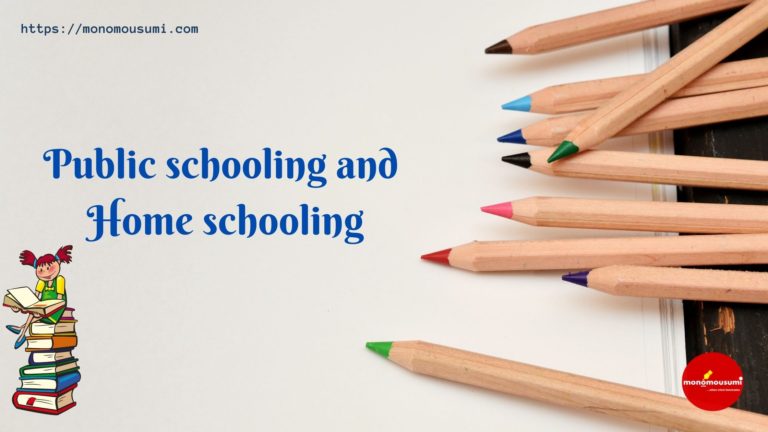
Business and Leadership
Introduction
Welcome to the intriguing intersection of two seemingly distinct worlds – literature and business. While these realms may appear poles apart, their synergy is more profound than you might think. Stories have been the cornerstone of human communication since the dawn of time, and literature has provided a treasure trove of narratives that have shaped cultures, beliefs, and societies.
But what do tales of far-off lands, epic battles, and star-crossed lovers have to do with the boardrooms and leadership decisions of today’s corporate world? Well, it turns out, quite a lot. In this article, we’re going to explore the profound influence of literature and storytelling on business and leadership, and why you should take note. So, strap in as we embark on this captivating journey into the realms of narrative-driven leadership.
The Power of a Great Story
Stories are not just for bedtime. They’re essential tools for conveying complex ideas, making them memorable, and inspiring action. Consider this: every iconic brand, from Apple to Nike, has a compelling narrative that goes beyond their products. The story behind your business at a bustling office space for rent in Goa or Mumbai is what sets you apart from the competition.
- Creating Connection: Humans are hardwired to connect with stories. A well-crafted narrative creates an emotional bond with your audience, whether they’re customers or employees.
- Memory Retention: People remember stories much better than data or facts. A captivating story can make your message stick in the minds of your team or clients.
- Inspiration and Motivation: Stories have the power to inspire and motivate. They can drive employees to excel, customers to buy, and investors to believe in your vision.
- Conflict Resolution: Narratives often revolve around conflict and resolution. In the business world, problem-solving and decision-making are at the core of leadership. Learning from literature can help in tackling complex issues.
Leadership Lessons from Classic Literature
Classic literature isn’t just about old books; it’s a treasure chest of timeless wisdom. Let’s delve into a few classics and see what leadership lessons they offer:
Moby-Dick by Herman Melville
“Call me Ishmael.” The opening line of this epic novel sets the stage for a journey of obsession and vengeance. Captain Ahab’s relentless pursuit of the white whale, Moby-Dick, teaches us about determination and the dangers of unchecked ambition.
Leadership Lesson: While determination is crucial, leaders must also be self-aware and willing to adapt when their obsession blinds them to the bigger picture.
The Art of War by Sun Tzu
This ancient Chinese text on military strategy contains wisdom that’s highly applicable to business. Sun Tzu’s emphasis on preparation, strategy, and understanding the competition can guide leaders in a competitive corporate world.
Leadership Lesson: Success in leadership often hinges on preparation, planning, and the ability to anticipate and adapt to challenges.
To Kill a Mockingbird by Harper Lee
Harper Lee’s masterpiece is a tale of empathy, racial injustice, and moral courage. Atticus Finch, an attorney who defends an innocent black man, embodies the importance of standing up for what’s right, even when it’s unpopular.
Leadership Lesson: Effective leaders prioritize principles over popularity and champion social justice and equality.
The Great Gatsby by F. Scott Fitzgerald
This story of Jay Gatsby’s opulent parties and pursuit of the American Dream highlights the dangers of superficiality and the pursuit of empty goals.
Leadership Lesson: Leaders must focus on creating meaningful, long-lasting value rather than getting lost in shallow pursuits.
Storytelling in Marketing and Branding
The business world has recognized the power of storytelling, especially in marketing and branding. Let’s explore why narratives are integral to these areas:
- Emotional Connection: Effective marketing isn’t just about product features; it’s about crafting a narrative that connects with the audience. Think about the heartwarming tales told in holiday commercials or the inspirational journeys shared by fitness brands.
- Building Trust: Trust is essential in business, and stories can build it. When a brand shares its history, values, and struggles, it humanizes itself and becomes more relatable.
- Customer Loyalty: Customers are more likely to remain loyal to brands that share their values and stories. Think about how Toms Shoes’ “One for One” campaign or Ben & Jerry’s socially conscious messages resonate with consumers.
- Differentiation: In a competitive market, storytelling sets your brand apart. It’s the “why” behind your product or service that captures the hearts and minds of your target audience.
Leadership and the Hero’s Journey
Joseph Campbell’s concept of the hero’s journey is a narrative structure found in many myths and stories. It involves a hero who embarks on an adventure, faces challenges, and returns transformed. Leaders can apply this framework to their own journeys:
- Call to Adventure: For leaders, this might be a career opportunity or the decision to start a business.
- The Journey: Leaders face numerous challenges and obstacles as they work towards their goals, similar to the hero’s adventures.
- Transformation: Successful leaders undergo personal growth and transformation, gaining wisdom and experience along the way.
- Return with a Gift: Leaders return to their organizations with newfound knowledge and the ability to inspire and lead effectively.
The hero’s journey provides a powerful blueprint for leaders, guiding them through their own adventures in the world of business.
Storytelling in Decision-Making
Stories also play a crucial role in decision-making, both at an individual and organizational level. Why? Because they make information relatable and actionable.
- Complex Data Simplified: When faced with complex data, stories can simplify the information and provide context. This aids leaders in making informed decisions.
- Risks and Consequences: Stories can outline the potential risks and consequences of a decision, allowing leaders to anticipate challenges and plan accordingly.
- Engaging Stakeholders: When presenting ideas to stakeholders, stories can make the proposal more engaging and persuasive.
- Inspiring Action: Stories can inspire action by highlighting the potential positive outcomes of a decision, motivating teams to work towards a common goal.
The Influence of Technology
In today’s digital age, the influence of literature and storytelling on business and leadership is more potent than ever, thanks to technology. Here’s how:
- Social Media: Platforms like Facebook, Instagram, and Twitter provide a stage for businesses to share their stories and connect with their audience.
- Video Content: Video is a storytelling powerhouse. From YouTube to TikTok, video content allows brands to tell their stories in engaging and memorable ways.
- Blogs and Content Marketing: Blogs and articles continue to be essential for sharing knowledge, experiences, and stories within the business world.
- Podcasts: The popularity of podcasts has surged, giving businesses a platform to narrate their stories, share insights, and connect with their audience.
- Virtual Reality (VR) and Augmented Reality (AR): These technologies offer immersive storytelling experiences, making it easier for customers to connect with brands on a deeper level.
Conclusion: The Narratives of Success
In the world of business and leadership, literature and storytelling are not just tools but guiding forces. They inspire, educate, and drive change. The stories we tell, whether they come from classic literature, marketing campaigns, or the hero’s journey, have the power to shape the future of our organizations.
As you navigate the complex world of business, remember the timeless lessons from literature, and don’t underestimate the influence of a well-told story. It’s not just about what you sell; it’s about the story you tell. So, embrace the power of narrative, and watch as your business and leadership journey transforms into a story of success.
Write and Win: Participate in Creative writing Contest & International Essay Contest and win fabulous prizes.


